This little herb is fairly well known throughout Southeast Asia, but in America it is very rare and difficult to find. It is used as a culinary herb, as well as medicinally. The rhizomes are used throughout its range, as a culinary herb to flavor rice.
This is one of many different gingers referred to as galangal. Any one of the plants called galangal, are a good substitute for any other, when it comes to flavor.
Click here for a video on this plant!
The flavor of the rhizomes of Kaempferia galanga, is similar to that of greater galangal (Alpinia galanga), but they grow much more slowly in terms of rhizome production. If you plan to have a lot of rhizomes to harvest for food, you will need to grow many of these little plants.
It is mentioned in The Plants of the Gods by Schultes and Hoffman, where they state: “Kaempferia galanga is used as an hallucinogen in New Guinea.” They speculate that the hallucinogenic properties may be due to constituents of the essential oils. I have not been able to confirm this claim. Medicinally it is used for sore throats, inflammation, rheumatism, and as an expectorant.
As useful as this little plant is, I mostly grow it because it is beautiful, and unusual. The short round leaves grow flat against the ground, and the stunning little orchid like flowers grow from between the leaves, emerging in the morning. When left in the ground they eventually grow a cluster that spreads slowly forming a ground cover of the leaves shingling over each other as a continuous covering. The plant is an obligate dormancy ginger, so they can be dug up and Wintered indoors even in the coldest climates.
Origin
Indonesia, New Guinea
Family
Zingiberaceae
Binomial nomenclature
Kaempferia galanga
Common names
Galangal, kencur
Description
A short stemmed rhizomatous plant with flat spreading leaves measuring 3-6 inches across. The one inch flowers are white with a purple spot on the lip, and appear singly in the center of the plant.
Height
1-3″ tall.
Temperature/Zone
zone 9a, 32°F. This plant prefers humid conditions while it is growing. It goes completely dormant in Winter. Sub freezing temperatures will kill the rhizomes, but they can be dug up and Wintered indoors in a paper bag.
Light
Part sun to shade.
Water
Keep them evenly hydrated while they are growing, but they must be kept dry while they are dormant or the rhizomes will rot.
Fertilizer
I use a fertilizer formulated for tomatoes on all of my gingers.
Cultivation
Kaempferia galanga is fairly forgiving of soil type. I generally grow them in a rich potting soil, but they tolerate the sandy soil of central Florida quite well. In hard clay soil, you will need to break up the soil and add organic matter, as well as gypsum.
Pests
Slugs have a particular affinity for the foliage and flowers of this plant.

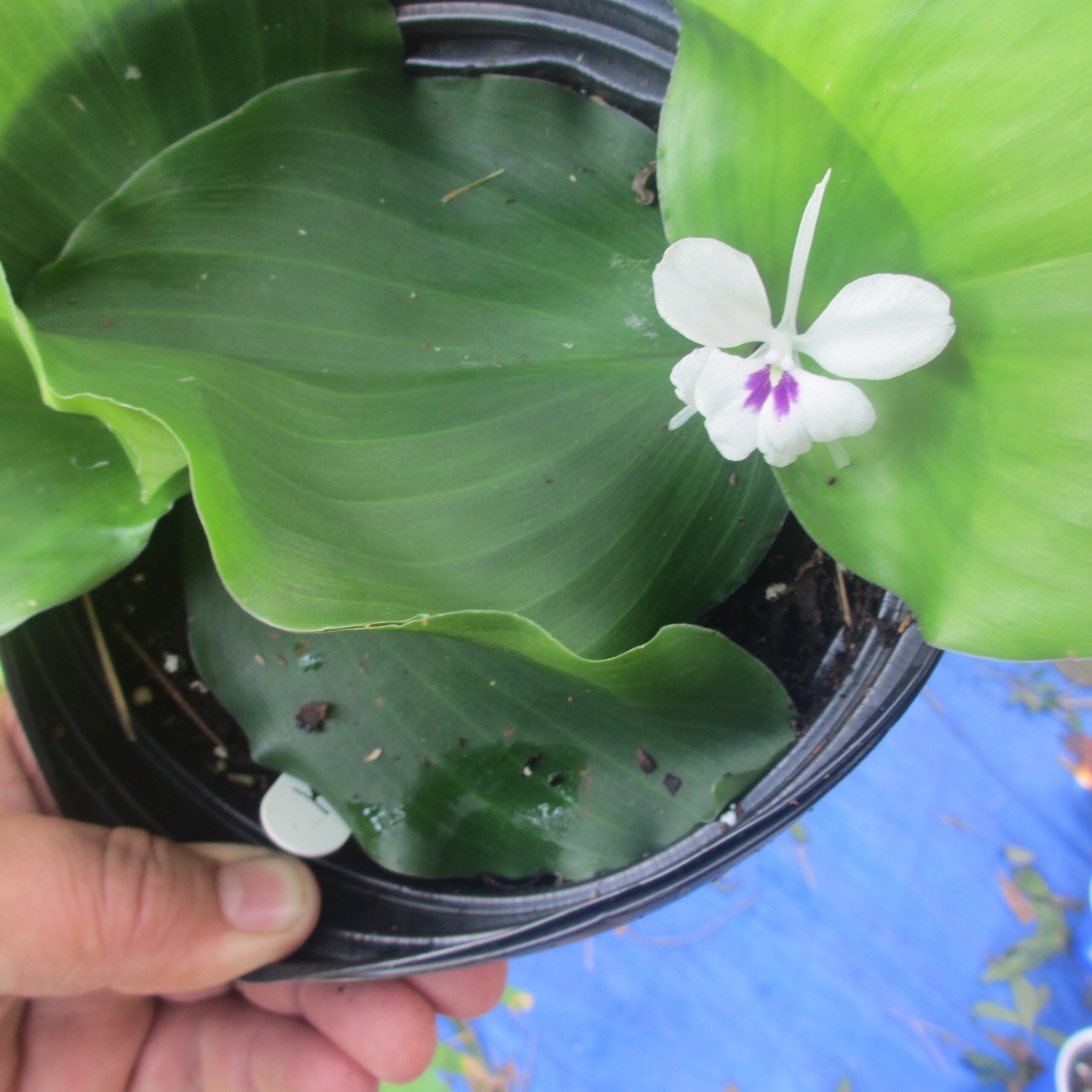
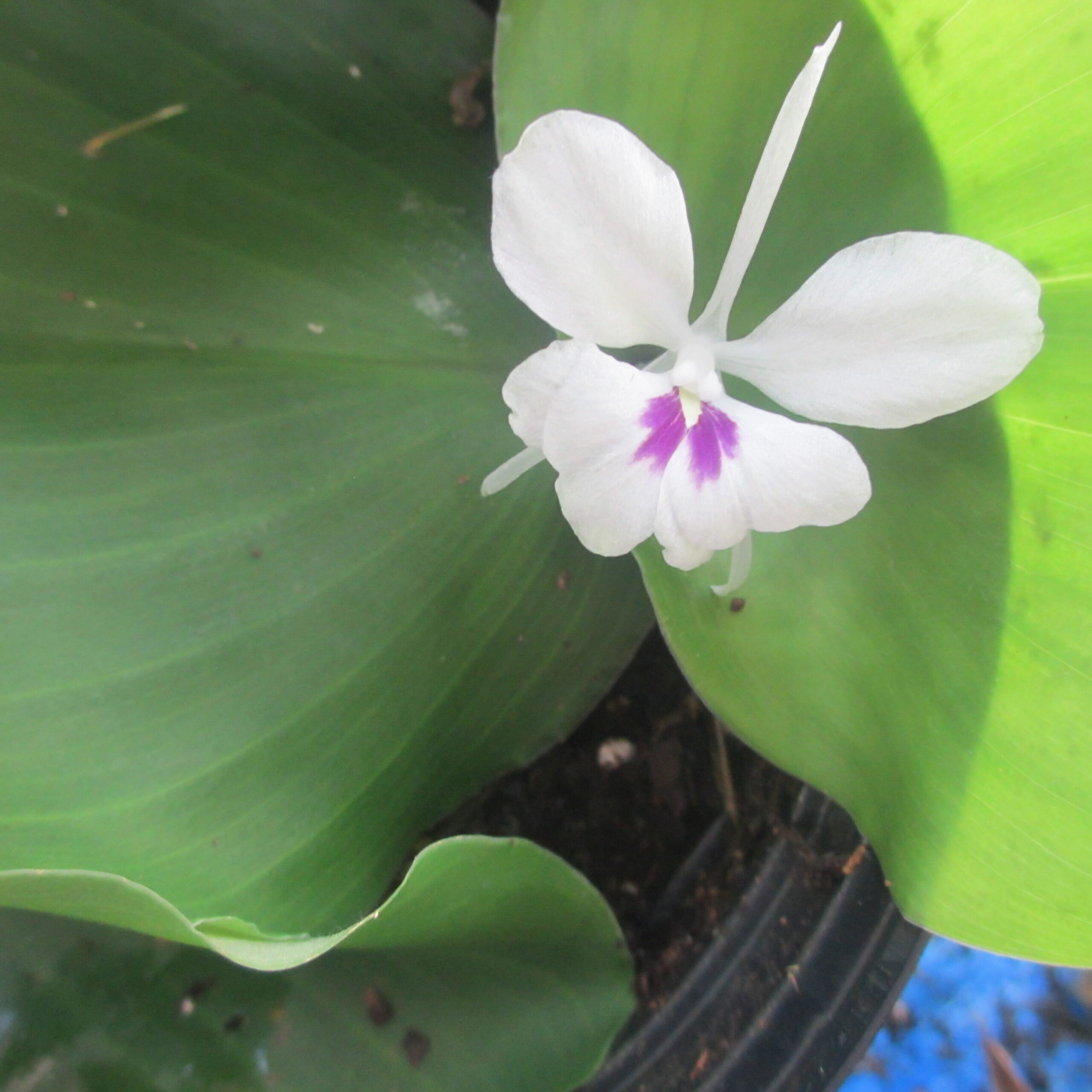

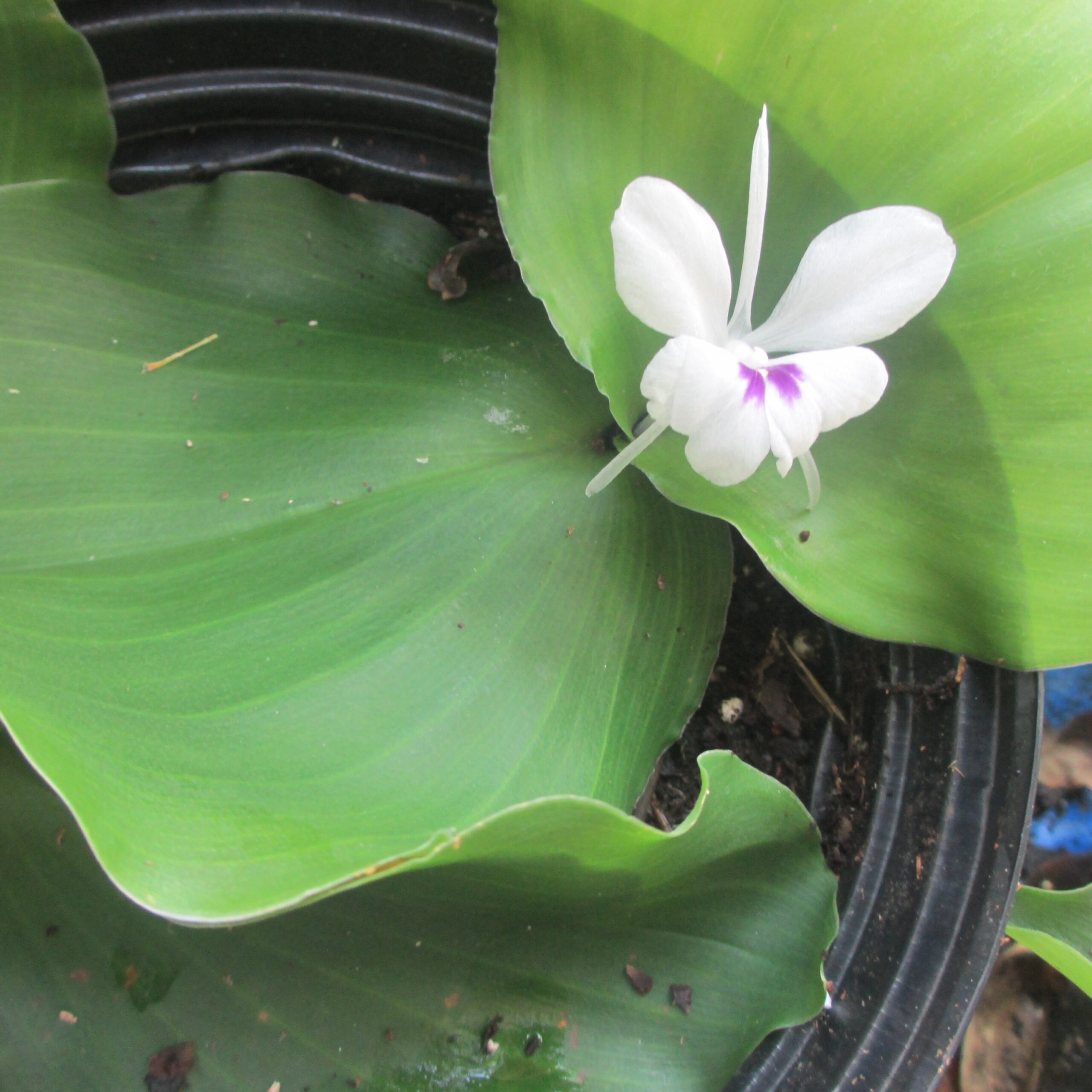
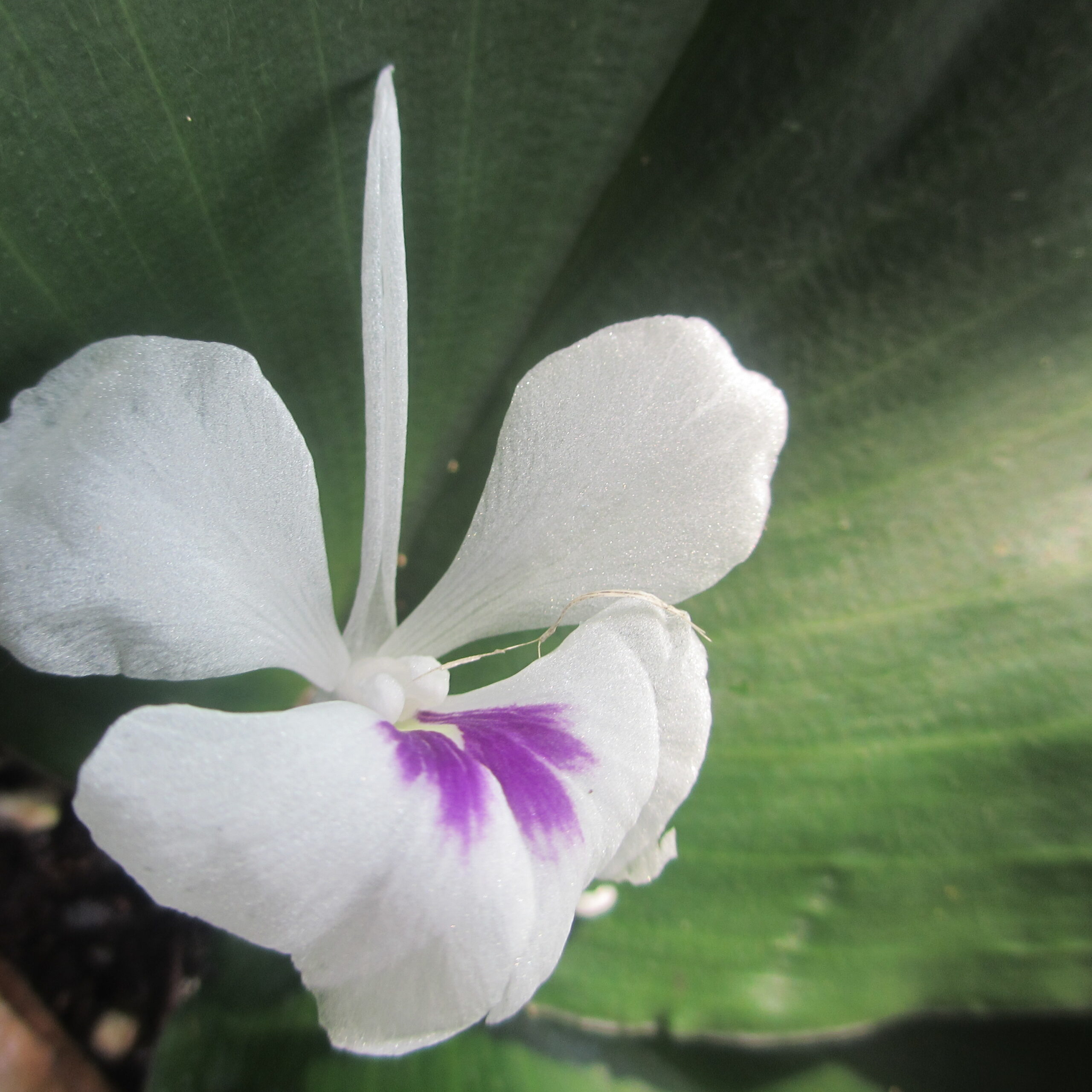
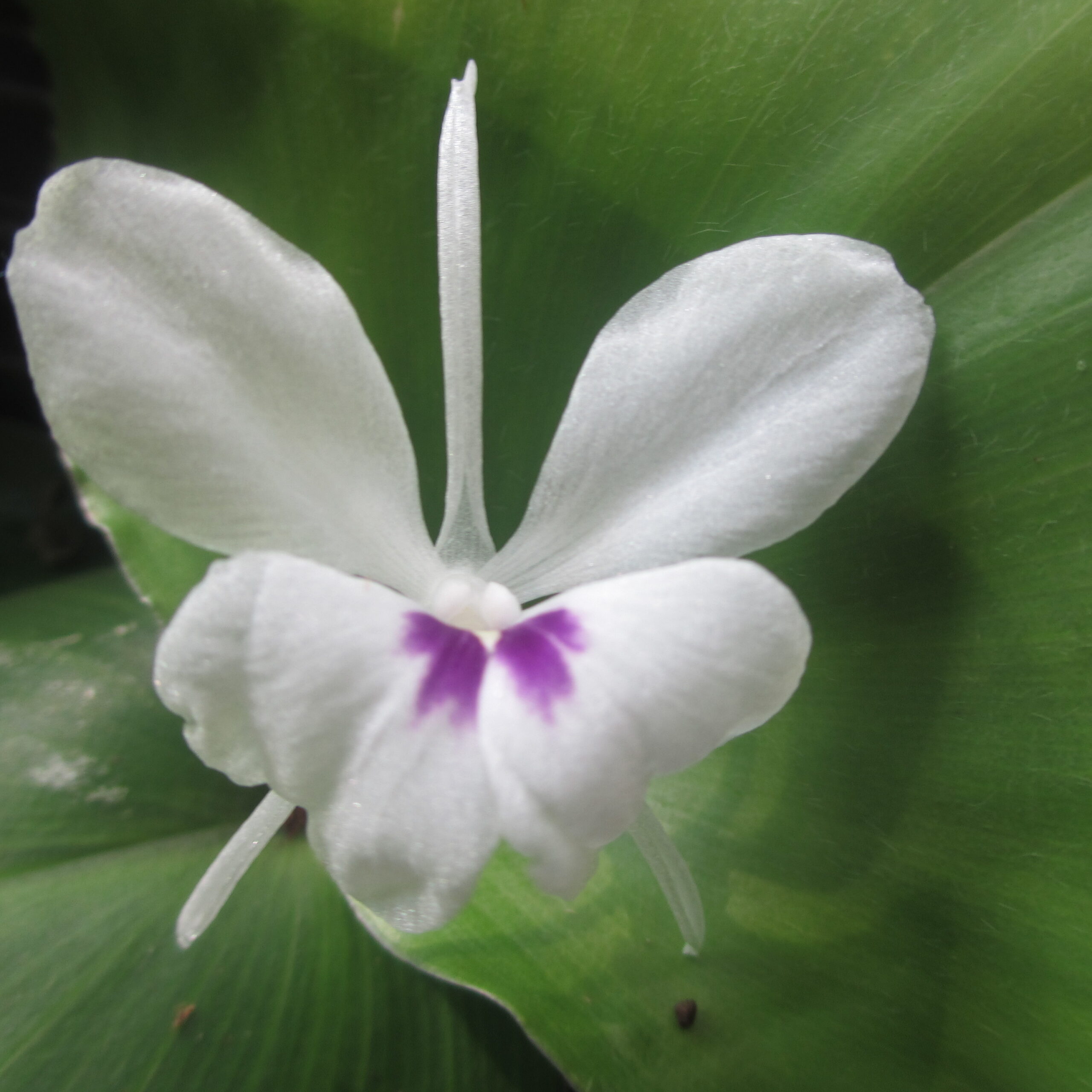
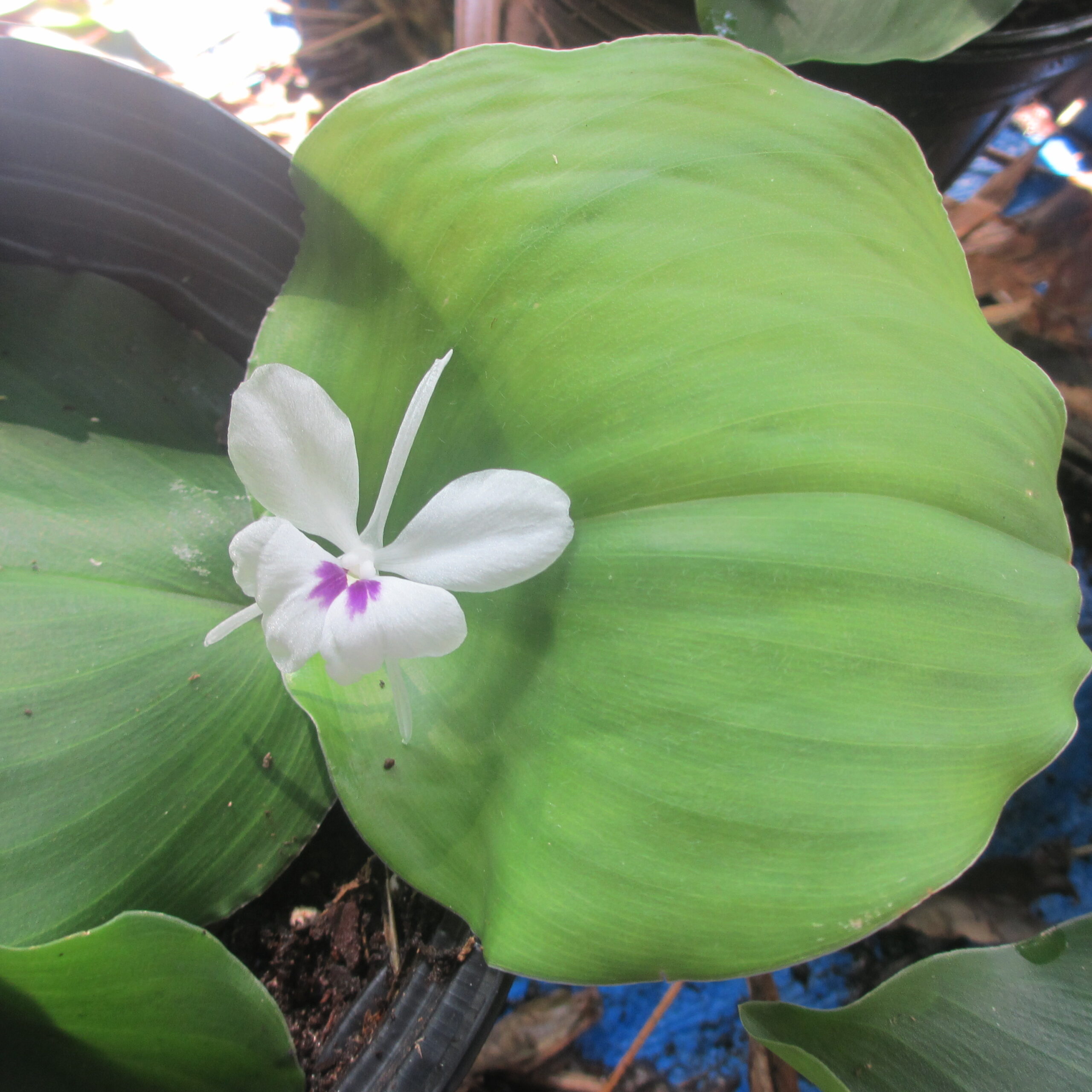
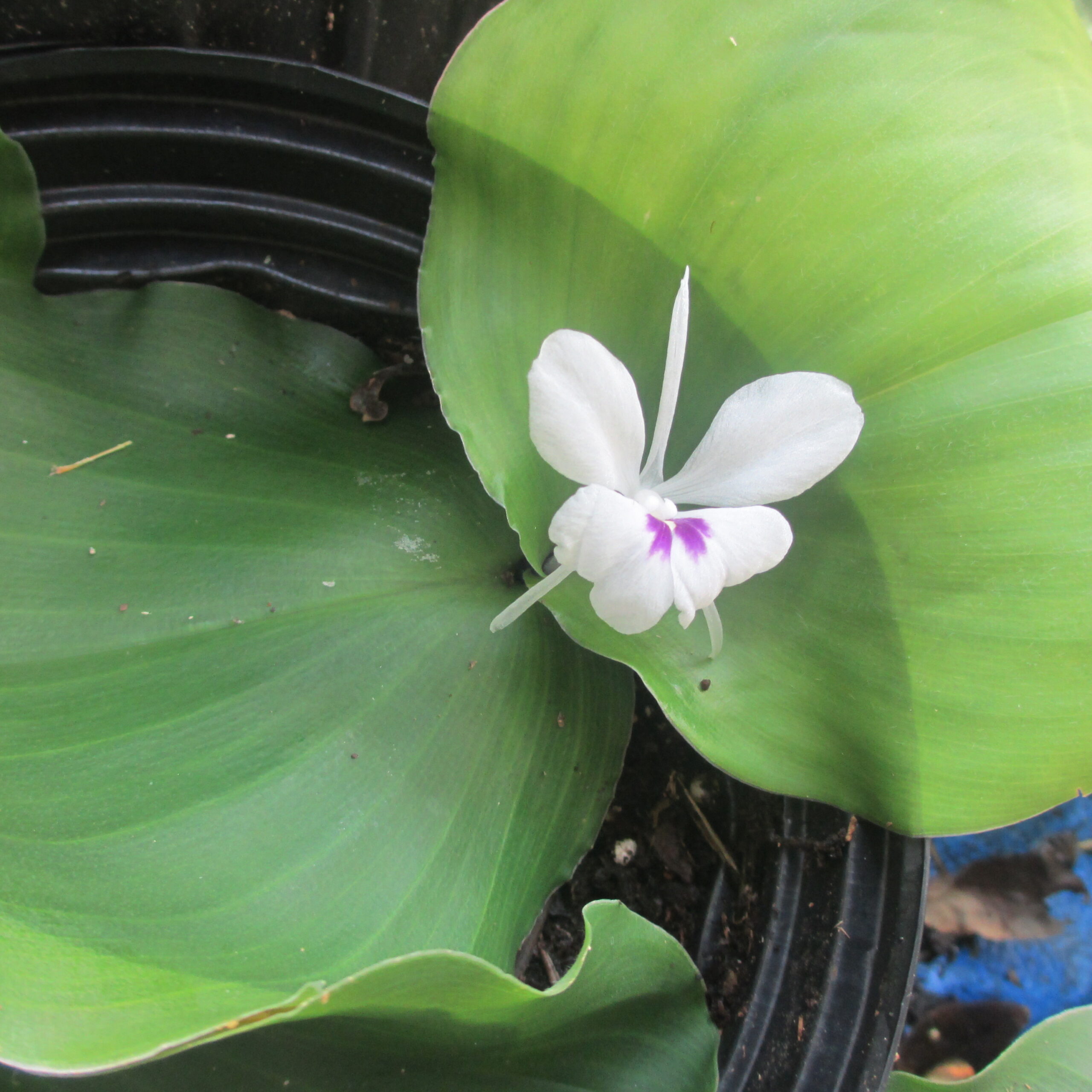
This plant in fact is pulverized into a culinary spice in chinese cuisine. Very popular. It is also renowned to hold a very awesome power to repel fleas. My uncle witnessed the immediate effect of sand ginger powder (as known in Chinese) once when his apartment was invaded by hordes of fleas brought in from some old furnitures. Within an hour they all but disappeared. Almost all older generation knows about this use against fleas, even though the younger ones mostly know only of its culinary use to spice up dishes.